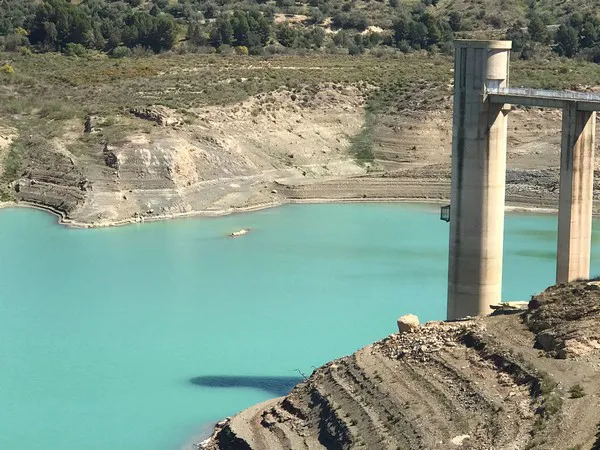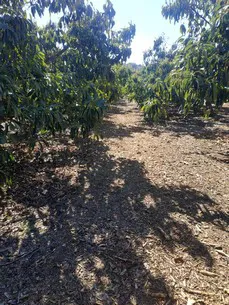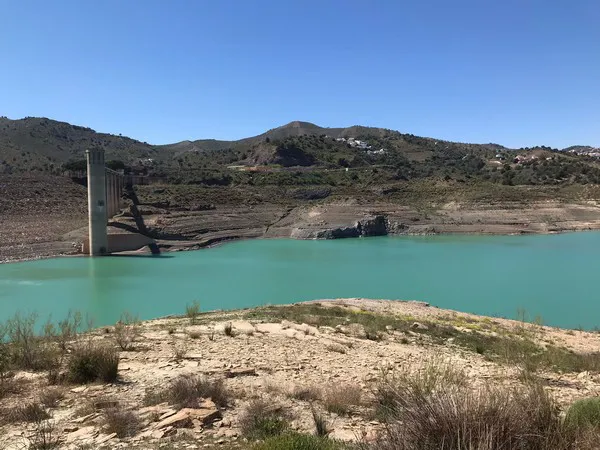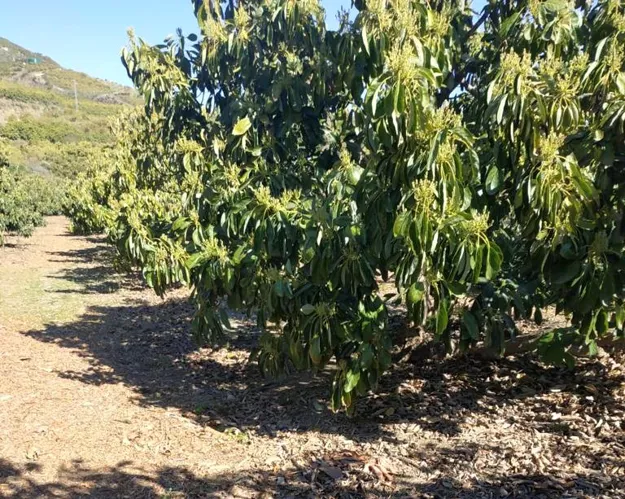March 22 was World Water Day, and it was also the first day of the UN Water Conference 2023, a new opportunity for people and the world's governments to raise awareness about the importance of this vital (and irreplaceable) resource, and to make a commitment to taking the necessary steps to guarantee access to it, as well as its conservation. Of all the water on the planet, which covers almost three quarters of its surface, it is estimated that only around 2.5-2.75%, including glaciers and polar masses, is freshwater, indispensable for animal and plant life.
This year, these figures are taking on a greater dimension, as Europe is plunged into a drought that is having an impact on many activities, including food production. The latter is often in the spotlight, as it consumes 70-80% of fresh water and the activity is also essential for life. Therefore, irrigation communities such as Huerta Marti y Los Recios, in La Axarquia, are working to manage the water resources available to them in the best possible way, especially this year, in which the situation in the region has become critical.

Water reservoir of La Viñuela.
"The irrigation community Huerta Marti y los Recios is attached to the Junta Central de Usuarios del Sur del Guaro, which was created to manage the various new sources of water that we have been forced to use, such as reclaimed water. It currently manages about 3,500 hectares."
"Already since 2021, part of the water used in the region is reclaimed and, since September 2022, when we could no longer obtain water from the reservoir of La Viñuela due to the drought, this is the only one that we irrigators are using."

Antonio says that "the Government of Andalusia has remained highly aware of our situation, and at the end of 2022, when the drought was formally declared, it launched an emergency initiative to bring a total of 11.5 hm³ of reclaimed water from Malaga and Rincon de la Victoria to La Axarquia, which required an investment of 43 million Euro. This is being implemented right now and the deadline for the delivery could be June or July. The irrigation communities have been doing great work and the irrigation community Huerta Marti y Los Recios is involved in a project worth almost 1 million Euro, aimed at adapting our facilities and ensuring the supply of water. The construction of a desalination plant is also being considered, but that would not be ready until 2026," says Antonio.
"It is true that reclaimed water is not the best water, but it is what we have and we should appreciate it. There are also many wells with marine intrusions, and the quality of that water is much worse than that of reclaimed water," he says, recalling that the La Viñuela reservoir is currently at 11% capacity, with only 17 hm³ of water. "In case of emergency, it has already been suggested that up to 8 hm³ can be taken by pumping the water from the surface, since in the last 9 hm³ the concentration of heavy metals and organic matter simply makes the water toxic."

"Innovation has played an unquestionably key role"
In any case, the sector has been working for decades in optimizing consumption and making the production of subtropical fruits (the majority in the region of La Axarquia) as sustainable as possible. "Innovation has played an unquestionably key role in achieving this," says Antonio Peralto. "Nowadays, drip irrigation is common and there are farms using probes to make sure the trees are only given the water they need when they need it."

"Subtropical crops have often been blamed for exhausting the water reserves, but the problem has been caused by the lack of no rainfall. 500 liters should have fallen, but not even 90 have been recorded, so it is impossible for the reservoir to recover. In fact, avocados consume less water per hectare than other fruits, such as oranges, and nobody is blaming oranges for the exhaustion of our resources."
"In fact," says Antonio, "the data available show that, depending on the crop, there are greenhouses in this area of Malaga using more water than subtropical growers."
For more information:
Antonio Peralto
Irrigation community Huerta Marti y los Recios
